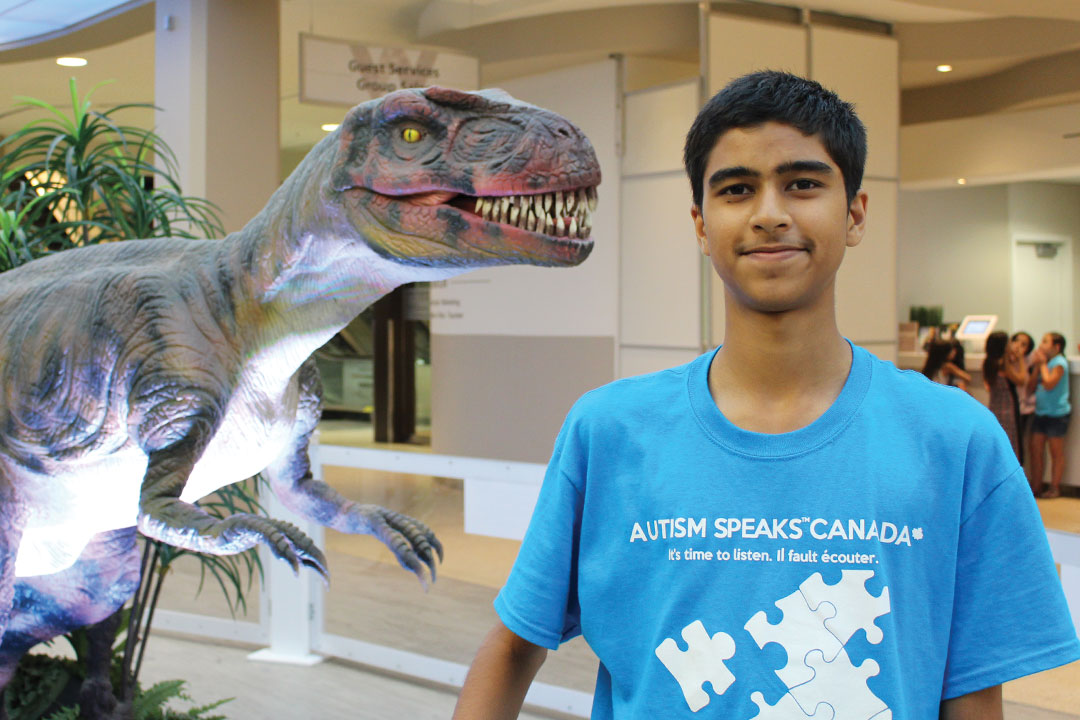
U of S hosts Sanofi Biogenius high school student science competition
SASKATOON —Eight Saskatchewan high school students will present their research projects and compete for cash prizes at the regional competition of the Sanofi Biogenius Canada biotechnology research competition hosted by the University of Saskatchewan (U of S) on April 5th.
Members of the public are invited to attend the presentations, which will be held at the Place Riel North Concourse, with a one-minute “elevator speech” competition taking place from 9:15 am to 10 am. The complete schedule is available at: http://biogenius.ca/saskatchewan-event-schedule/ The winners will go on to the nationals in Toronto May 9.
“This competition is a great way for high school students to explore their passion for science and be mentored by U of S researchers,” said U of S computer scientist and competition mentor Tony Kusalik. “The experience can be life-changing and career-shaping for students. The sky’s the limit in terms of where this might take a student.”
Harkirat Bhullar, a Grade 10 student at Evan Hardy Collegiate, is one example. He met Professor Kusalik in 2016 through the Sanofi Biogenius organization and was so inspired by the mentoring experience that he wanted to do more research.
Bhullar had a Grade 8 classmate with autism, which prompted him to join the Autism Speaks Canada local planning committee. He knew he wanted to do research that could help people with autism, and he was intrigued with getting computers to learn like humans.
Kusalik put him in touch with recent U of S bioinformatics graduate Brett Trost, who is now a post-doctoral fellow at the Centre for Applied Genomics at the Hospital for Sick Kids in Toronto. The lab is internationally known for its autism work.
While a graduate student at the U of S, Trost won a $100,000 Vanier Scholarship in 2009 and together he and Kusalik developed PIIKA, a new software system used by the U.S. National Institutes of Health's integrated research facility in Maryland to study how Ebola infects cells and what cells do to fight the infection.
Trost now mentors Bhullar long distance on an autism-related research project, with assistance from U of S bioinformatics graduate students Kim MacKay (Vanier Scholar) and Katie Ovens. The project goal is to develop a way to automate the diagnosis process for autism. He has already developed a computational model for autism diagnosis that has proven to be 99 per cent accurate.
“This experience has made me more certain that I want to do something in science and I’d like to do something new,” said Bhullar, who is competing in the competition on April 5.
Bhullar is among seven Canadian top high school scientists selected by Youth Science Canada to represent the country at the 2017 Intel International Science and Engineering Fair May 14 to 19 in Los Angeles. The top award for the competition, which is described as the world championships of science fairs, is US$75,000.
The 11 Saskatchewan high school competitors and their topics are:
- Aunum Abid (Montgomery School)—a more effective method of flash-freezing to preserve mammal egg cells
- Pushpita Bhowmik (Aden Bowman Collegiate)—understanding aging and stress response at the cellular level in yeast
- Harkirat Bhullar (Evan Hardy Collegiate Institute)—combining genetics and behavior through machine learning to create a better tool for autism diagnosis
- Swarna Emayavaramban (Evan Hardy Collegiate Institute)—paving the path toward a cure for Alzheimer’s Disease
- Britney Feng (Centennial Collegiate)—examining the nutritional value of non-conventional grains to improve human health
- Darshana Lanke (Montgomery School)—a comparative study to characterize wheat allergenicity in ancient and modern wheat cultivars
- Shaelagh Stephan (Valley Manor Elementary School)—from plant waste to biodegradable bioplastics
- Catherine Sun (Centennial Collegiate)—identifying the species of scab responsible for fusarium head blight infecting Saskatchewan wheat
U of S mentors are: Troy Harkness (anatomy and cell biology), Tony Kusalik (computer science), Maa Quartey (post-doctoral Fellow in the Mousseau cell signalling laboratory), Randy Kutcher (plant sciences), Aaron Beattie (plant sciences), and Ravindra Chibbar, Canada Research Chair in Molecular Biology for Crop Quality (plant sciences).
“We are excited to be nurturing these talented young scientists and challenging them to carry out research projects with potential real-world impact in the field of biotechnology,” said U of S Vice-President Research Karen Chad.
As part of the U of S Canada 150 Project, each participating student will be awarded a U of S Canada 150 Biogenius Entrance Prize of $150, which will be credited to the tuition account of students who attend U of S.
“Partners In Research Canada is proud to be the managing partner of the Sanofi Biogenius Canada competition,” said Executive Director Brent Peltola. “This component of our programming encourages students to advance their skills in STEM areas—science, technology, engineering and mathematics—through mentorship with Canadian research mentors.”
-30-
For more information, contact:
Jennifer Thoma
Media Relations Specialist
University of Saskatchewan
306-966-1851
jennifer.thoma@usask.ca

